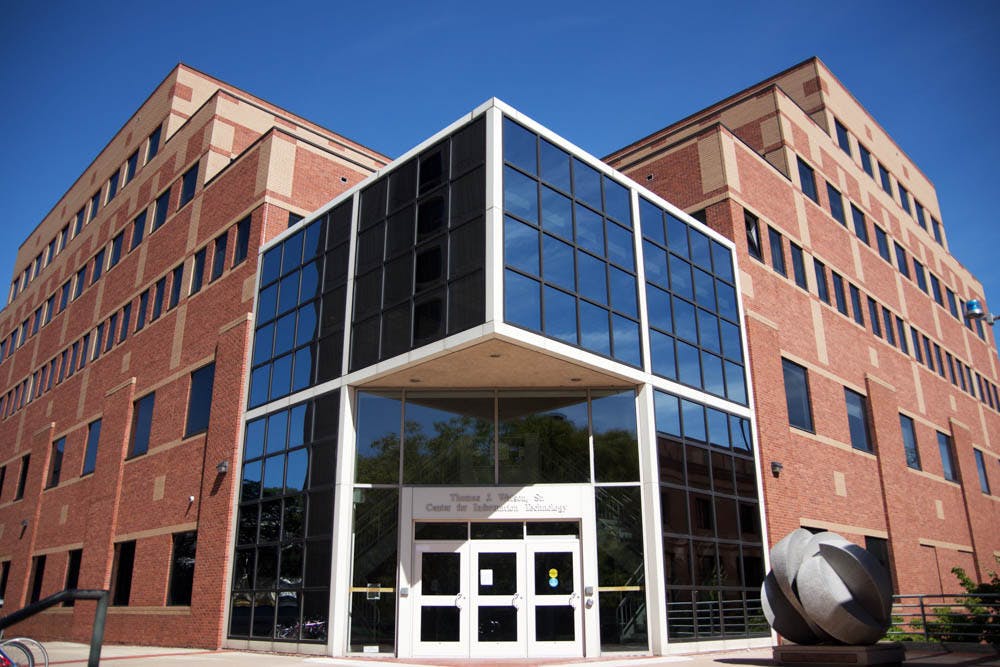Indicated by the many awards earned by faculty and former students, the computer science department has recently demonstrated its ability to attract high-achieving students and equip them with valuable skills for their work in fields ranging from artificial intelligence to embedded smart vision systems.
Assistant Professor of Computer Science George Konidaris received an Air Force of Scientific Research Young Investigator Research Award in November for his research on artificial intelligence. He described his work as “getting robots to think abstractly.” The goal is to allow robots to “hallucinate abstractions of the world that allow them to make very fast, intelligent decisions,” Konidaris said.
Konidaris was drawn to artificial intelligence because it seeks to answer “one of the most mysterious things in the world: … What is it that makes intelligence possible?” he said. Robotics particularly appealed to him because it seemed the most natural analogue to human behavior — if the brain acts as a computer, the body can be represented by a robot, he said. “It could add tremendous value to the world,” he added.
Foreign Policy Magazine listed Assistant Professor of Computer Science Stefanie Tellex and John Oberlin GS as two of its 2016 Leading Global Thinkers. Placed on the list’s “Innovators” category, Tellex and Oberlin were recognized for their work in robotic grasping and robot learning. For their research, the pair used an industrial robot named Baxter, which uses cameras and infrared sensors to examine objects and determine the best clutches for them. Tellex also won a NASA Early Career Faculty Award in August for her research in human-robot collaboration.
For his work with reconfigurable computing and smart vision systems embedded in other devices, Associate Professor of Engineering and Computer Science Sherief Reda was named as one of the Providence Journal’s 2017 Rhode Island Innovators. The Rhode Island Innovators “are finding new ways to develop products, devices, applications, computer models, methods and policies that are solving problems in business, education, the arts, government and health care,” the Providence Journal reported.
Another success in the field includes Hoon Ik Chang ’13, a computer science alum who currently works for the Korean Minister of National Defense. Chang was recently named a 2018 Schwarzman Scholar, which allows him to participate in a program that provides funding for students to pursue a one-year master’s degree at Tsinghua University in Beijing.
Tom Doeppner, vice chair of the computer science department, attributes the department’s success to its focus on undergraduate programs in addition to research. “When we hire new faculty, we want to make sure that our new faculty are not just great researchers but also very interested in teaching,” he said.
Likewise, Chair and Professor of Computer Science Ugur Cetintemel said that the goal was to “give the best education to our students, and also … take steps that keep us competitive and at the leading edge of innovation.”
Cetintemel identified the people in the department as one of the fundamental factors contributing to its success: “We start with great material — great students and great faculty,” he said. “They are people who care about making an impact.”
Cetintemel and Doeppner both pointed to the intimacy of the computer science community and the faculty’s investment in students as additional elements crucial to the department’s strength. The faculty strives to involve students in the department, Doeppner added, specifically highlighting their extensive undergraduate teaching assistant program.
“We are close with (our students) and try to nurture them to the best of our ability,” Cetintemel added.
Konidaris joined Brown’s computer science department in Fall 2016. “It’s a tremendous department, really full of enormously supportive people. Everybody tries to help others do their best work,” he said. While Brown and the department itself may be small compared to competing institutions, “every member of the department is truly the best in their field,” Konidaris added.
Centintemel emphasized the importance of prioritizing student work and providing an outlet for pushing forward their findings. Not only do faculty members work to identify opportunities for students, but once students have achieved success, Brown faculty work with people in the computer science community to nominate them for awards, Cetintemel said.
“There’s the saying — if you don’t take the shot you’ll always miss it,” Cetintemel said. “It’s one thing to do great work, but it’s also very important to make sure the world recognizes the great work you’ve done.”
The computer science department hopes to continue developing, in terms of research, innovation and representation. “Simply in the last couple years, we have grown in the areas of cybersecurity, robotics, computation design and photography,” Cetintemel said, adding that “as is definitely the case in all departments in the University, we are working on getting more faculty from underrepresented minorities.”





